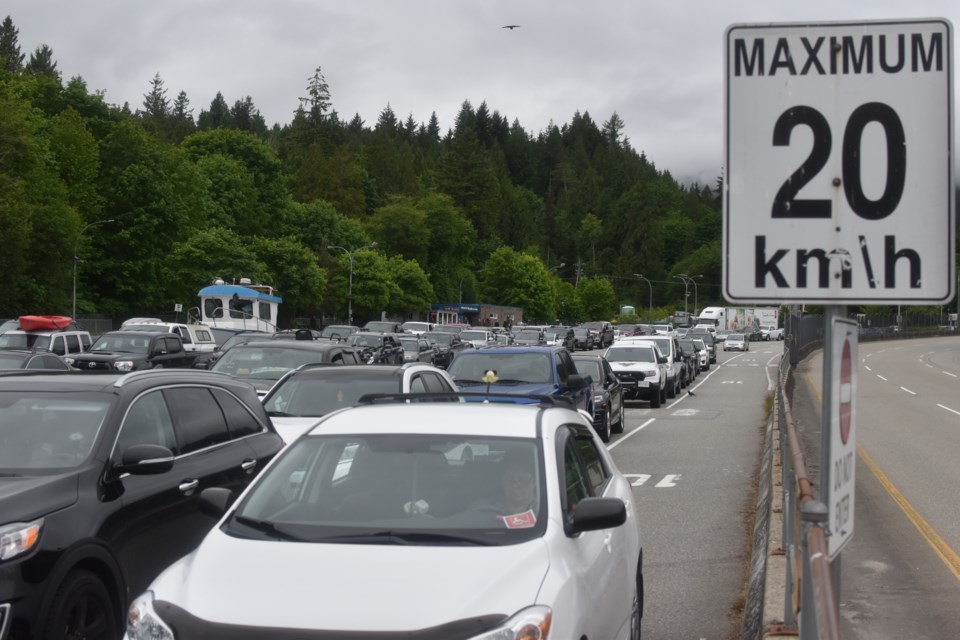The unofficial summer kickoff weekend came and went without much change to traffic levels on Route 3, according to BC Ferries.
There was no increase in vehicle traffic between the Sunshine Coast and Horseshoe Bay compared to the weekend prior, said BC Ferries public affairs executive director Deborah Marshall, though the company said overloads occurred at Horseshoe Bay on Friday and Langdale on Monday, May 24, and foot passenger traffic increased by 20 per cent.
Compared to the 2019 Victoria Day long weekend, vehicle traffic was down 31 per cent and foot passenger traffic was down 48 per cent.
BC Ferries declined to share specific numbers for weekend passengers. The company also declined to compare traffic to the 2020 Victoria Day long weekend. “It’s not comparable as no one was travelling at the start of the pandemic,” Marshall told Coast Reporter in response to the query.
Last year, 7,649 passengers travelled on Route 3 from May 14 to May 17, compared with 23,586 in 2019. Those figures were disclosed by Health Minister Adrian Dix last year.
At that time, BC Ferries was operating at 50 per cent passenger capacity in keeping with Transport Canada requirements. The company has since shifted to an average of 70 per cent foot passenger capacity and is back at full capacity for vehicles on Route 3.
There were no incidents to report related to travel orders, Marshall said.
Prior to the long weekend, local politicians expressed concern that the legal restrictions placed on non-essential travel between three regional zones in B.C. would end up funnelling visitors to the Sunshine Coast, since it remained open for visitors from the Vancouver Coastal and Fraser Health region.
On May 25, Premier John Horgan said the rules and enforcement around non-essential travel would remain in effect, but advice to avoid areas outside of people’s community of residence within their regional zone would be lifted.
During the media briefing, provincial health officer Dr. Bonnie Henry explained travel restrictions are “a very effective measure of stopping transmission and introductions into communities when we’re not yet at that point where enough people are immunized, where our case levels are low enough.”
She also mentioned that some communities in B.C. “are not yet ready to welcome others.”
“Go camping within the area that you live, but we want to protect those areas that have less transmission and make sure that we’re not spreading the virus that is still circulating right now,” she said.
By mid-June, “we’ll be able to open up B.C. to B.C.” if health trends continue in the right direction, Henry said.



